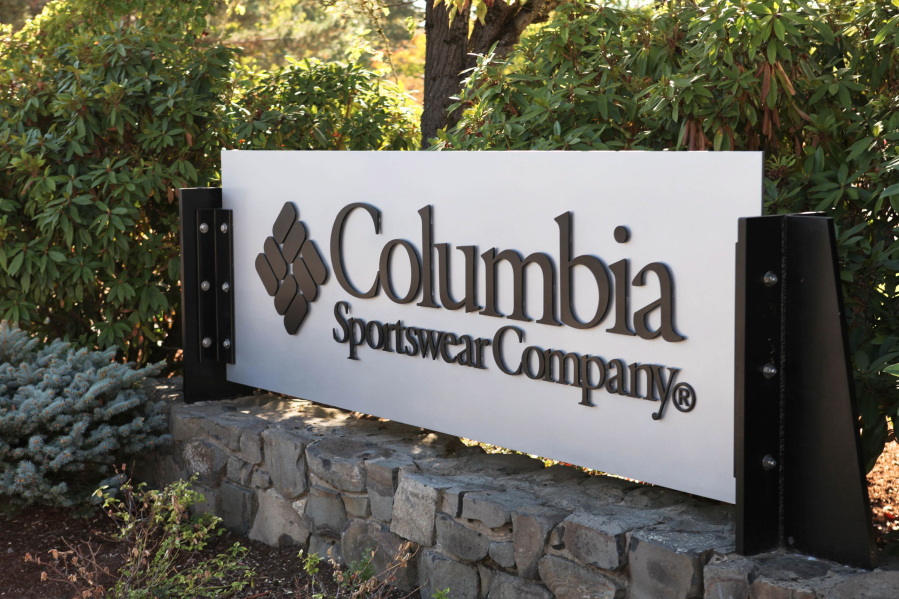WASHINGTON — The nation’s capital is not Tim Boyle’s favorite town. “When we wade into a swamp, it is usually to test our products,” the Columbia Sportswear chief executive quipped.
Nevertheless, Boyle recently descended on Washington with a full team from Oregon to wage an all-out lobbying war. Columbia and most of the U.S. outdoor and athletic apparel and footwear makers have mobilized to defeat a key component of the Republican tax reform plan they claim is so onerous it will slash their profits by as much as 70 percent and potentially put some of them out of business.
Trump and Republican lawmakers want to slash tax rates across the board. They say the resulting $2.4 trillion saved by taxpayers over 10 years will supercharge the economy and put nearly $5,000 a year into the average family’s pocket. Some of the biggest companies in the world are backing the plan, in the view it will spur profits, investment and hiring.
But to pay for that largesse, a House Republican proposal floated last summer would impose a new tax on companies that sell or rely on imported products — think retailers, sneaker makers and apparel producers. Trump has sent mixed signals about whether he supports this facet of the plan.
Boyle blasted the so-called border adjustment tax and its backers. His company, like Nike, sources the vast majority of its products from Asian subcontractors. He echoed the sentiments ringing through much of Washington these days: It’s tough to do business when you don’t know what the executive in chief is going to do next.
“Business and particularly international trade rely on trust and regularity and predictability,” Boyle said. “If we have a White House that behaves unpredictably, that’s not good. It’s very difficult to be anything but critical about what is going on there. It really does seem like it’s amateur hour.”
Trump probably doesn’t care what Boyle thinks. He’s an unapologetic protectionist who has repeatedly vowed to restore American jobs, a pitch that clearly resonated with many voters.
With his border walls and protectionist trade policies, the contrast between Trump and the free-trade advocates who preceded him in the White House could not be more dramatic. For two decades, presidents of both parties pushed global free trade deals over the howls of organized labor and some workers.
U.S. Rep. Peter DeFazio, a Eugene, Ore., liberal, has found an unlikely ally in Trump. For years he has hammered away at free trade deals, which he contends only alienate working-class Americans.
“The first time Democrats lost the Rust Belt was in 1994 after Bill Clinton signed NAFTA,” he said, referencing the North American Free Trade Agreement. Twenty-four years later, it cost Hilary Clinton the election, and it’s “given us Trump.”
The border adjustment tax could help Trump achieve that boom in American jobs. It would exempt the value of U.S. goods exported to other countries from taxation and tax the value of imported goods entering the U.S.
In that sense, the Republican plan would favor exporters and would move the U.S. to the kind of “destination-based” tax system employed by most of the rest of the developed world.
Phasing out the domestic tax on exports would be an enormous boon for U.S. manufacturers. A group of large companies including Boeing, General Electric and Oracle have formed the American Made Coalition in support of the GOP plan. They are attracted both by the huge rate cut and the phase-out of the hated “Made in America tax.”
But the plan also would run up the costs of imports, likely forcing retailers and other importers to pass them along to consumers.
Hiking pressure on retail
Boyle said he doesn’t have a problem with nudging the tax code to support domestic manufacturers. But hammering importers at the same time isn’t the answer, he said.
Analysts of the athletic footwear and apparel business still can’t bring themselves to believe that the pro-business Republican Party would even consider tax code changes so harmful to a large sector of the economy. Jim Duffy, an analyst who follows Oregon-based Nike for Stifel, said the entire retail sector, heavily reliant as it is on imports, could see a wave of defaults and corporate failures if the Republican plan to become law.
“Retail is already under pressure, retailers are closing stores,” he said. “If you introduce such a radical tax change, you’d render them all unprofitable.”
The Republican blueprint that calls for the border adjustment tax was developed primarily by Speaker of the House Paul Ryan and Kevin Brady, two of the most powerful members of the House of Representatives.
Oregon’s entire congressional delegation objects to the plan. Sen. Ron Wyden echoed the sentiments of his fellow Democrats when he argued the Republican plan is a giveaway to the wealthy. He called the border adjustment tax the “grocery tax,” because of its likely impact on the price of consumer goods.
But dropping the border adjustment tax might not be a simple matter. The $1 trillion raised by the tax on importers would ease the giant tax cut’s impact on the deficit.
That the proposed import tax would originate with Ryan and House Republicans is particularly irritating to Oregon executives. Boyle, Nike co-founder Phil Knight and several other executives attended a Republican fundraiser last summer at the Waverly Country Club. Oregon Republican Rep. Greg Walden and Ryan hosted the event, and Ryan was the featured speaker.
Ryan spent much of the evening talking about the importance of reducing tariffs and other trade barriers, which impressed Boyle. Campaign finance data shows he donated $25,000 afterward. So did Nike CEO Mark Parker. Knight contributed nearly $100,000 to Ryan, his political action committee and the National Republican Congressional Campaign.
Ryan reportedly never said a word about his tax plan and the poisonous pill it contained for Boyle’s industry.
“I came away from that meeting thinking this is real trade guy,” Boyle said. “I was surprised when he signed on with this terrible tax plan.”




